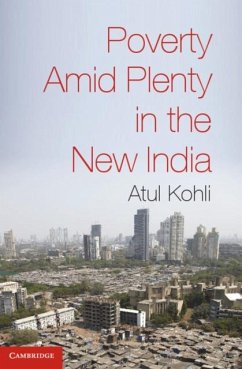India has one of the fastest growing economies on earth. Over the past three decades, socialism has been replaced by pro-business policies as the way forward. And yet, in this 'new' India, grinding poverty is still a feature of everyday life. Some 450 million people subsist on less than $1.25 per day and nearly half of India's children are malnourished. In his latest book, Atul Kohli, a seasoned scholar of Indian politics and economics, blames this discrepancy on the narrow nature of the ruling alliance in India that, in its new-found relationship with business, has prioritized economic growth above all other social and political considerations. This thoughtful and challenging book affords an alternative vision of India's rise in the world that its democratic rulers will be forced to come to grips with in the years ahead.
Dieser Download kann aus rechtlichen Gründen nur mit Rechnungsadresse in A, B, BG, CY, CZ, D, DK, EW, E, FIN, F, GR, HR, H, IRL, I, LT, L, LR, M, NL, PL, P, R, S, SLO, SK ausgeliefert werden.

